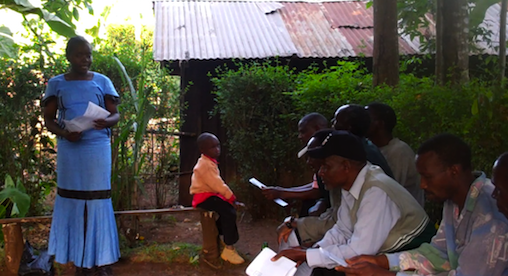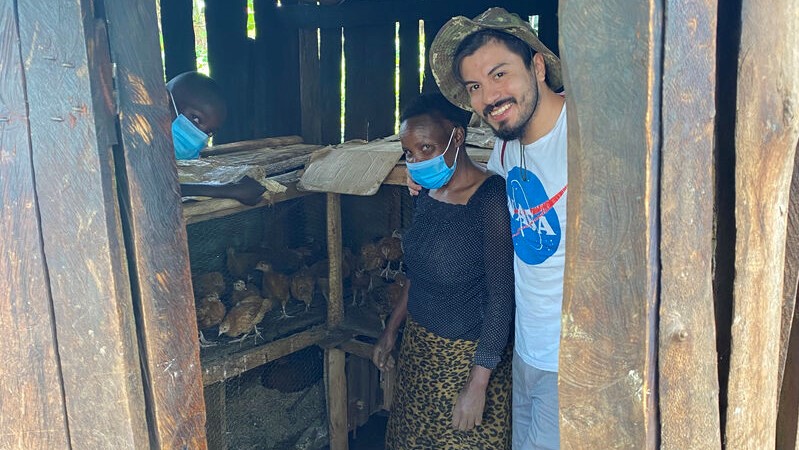Access to Legal Institutions
The project provides empirical evidence to the theory that it is the quality of institutions, rather than geography or culture, which explains the difference in living standards between countries. Elimu conducted the first ever randomized experiment which measured the direct impact of access to the judiciary on economic growth. The hypothesis is that small scale farmers with better access to the legal system and more secure property rights will increase investment with ownership and thus foster economic growth.
In this project, Elimu is:- Identifying potential participants by visiting people door to door and asking if they are involved in legal conflicts, asking them to refer to friends with legal conflicts, and asking elders in the community to refer us to cases.
- Collecting a baseline survey with questions on the security of property rights, contracting behaviour, investment, entrepreneurship, access to credit, informality, and poverty.
- Providing legal aid to a randomized treatment group.
- Collecting the endline survey after this is completed.
In addition, Elimu is engaged in four additional and independent interventions measuring the impact of access to the judiciary:
- Offering mediation as an alternative dispute resolution by organizing sessions with a mutually agreed upon mediator to resolve the land conflict.
- Examining the impact of possessing proof of land ownership by purchasing Search Certificates, a formal declaration of the current landowner.
- Providing instruction to farmers on on buying and selling new land.
- Providing instruction to farmers on how to write a will to legally define a line of succession.
Here are our Research Papers on the access to the judiciary:
Access to Health Insurance

The Kianyaga community is composed of many lower income small-scale farmers in the informal sector, who do not have health insurance, despite the existence of affordable products. For example, the National Hospital Insurance Fund (NHIF) offers an insurance product that covers all hospitalization costs for a small sum. This health insurance product could avoid poor farmers to pay very large catastrophic expenses in case of hospitalization, that could significantly run down their savings and trap them into poverty. In collaboration with the Kianyaga community and NHIF, Elimu undertook a research project to discover the reasons of this low take-up rate. Several interventions were put in place in randomized sub-groups to evaluate the most cost-effective way for NHIF to reach the poor. Examples of such intervention included disseminating information about insurance, offering assistance to register, distributing monetary or in-kind subsidies, sensitizing about insurance through a local NGO, and organizing information meetings for existing informal insurance groups. In the conclusion of this project, Elimu is now collecting an endline survey on 2,300 households to evaluate the impact of health insurance on those who decided to take-up.
Here are our Research Papers on the access health insurance:
Micro-Hydro Electricity
With affordable electricity, local farmers may use water pumps for irrigating high value crops, microentrepreneurs may create businesses that require light or powered machines, children may spend less time collecting firewood and more studying at night under proper lighting, women may devote less time to household chores and more to other valuable things such as education.
Pilot Projects for productive Use of Electricity

Chicken Rearing Pilot Project
Poultry farming can be improved with a source of electricity. The idea is that since chickens only feed when there is sufficient light, we can expose them to more light in cycles of three hours of darkness and one hour of light. The chickens should thus grow larger. We are currently pilot testing a chicken electricity rearing project to increase agricultural productivity.
Funding
These projects have been generously supported by the following organizations: Social Sciences and Humanities Research Council (SSHRC), Canadian Institutes of Health Research (CIHR), Fonds de Recherche du Québec - Société et Culture (FQRSC), Center for International Governance Innovation, Universities and Colleges of Canada (AUCC)-Canadian International Development Agency (CIDA), McGill Social Sciences and Humanities Development Grants.